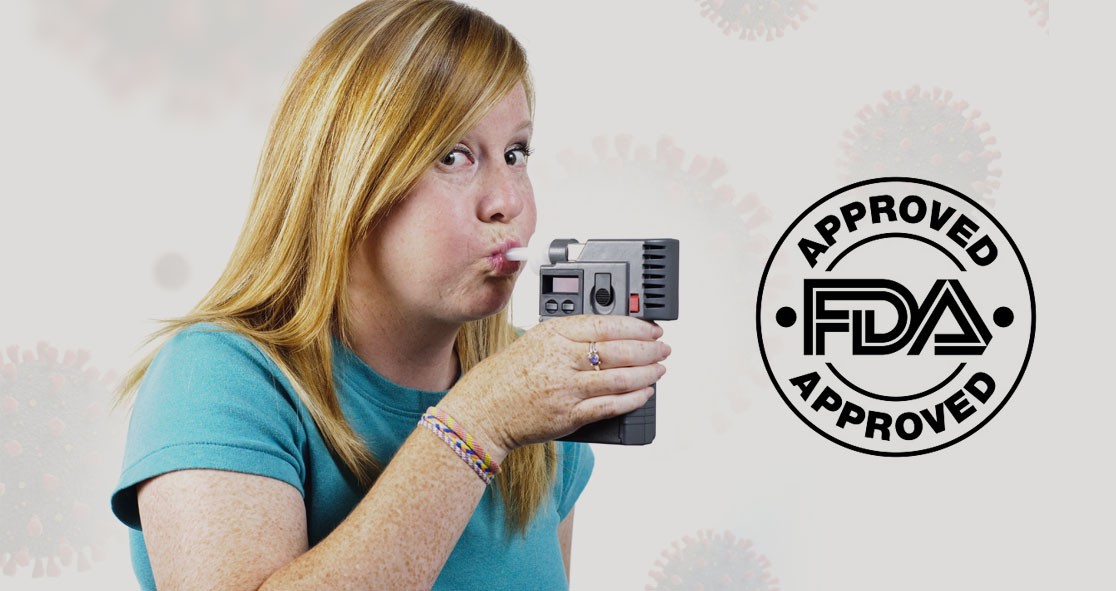On Thursday, the U.S. Food and Drug Administration (FDA) granted Emergency Use Authorization (EUA) to the first COVID breath testing device, which spots chemical compounds associated with SARS-CoV-2, the virus that causes COVID-19, in a breath.
The agency said the InspectIR COVID-19 Breathalyzer, which is about the size of a piece of carry-on luggage, can be used in medical offices and mobile testing sites, according to CNN. It gives results within three minutes.
The device separates and identifies chemical mixtures to detect five compounds that are associated with the COVID-19 infection.
A clinical trial of the InspectIR Breathalyzer found that the device accurately identified more than 91% of positive samples and nearly 100% of negative samples.
The FDA said, “Similar sensitivity was found in another study that focused on the Omicron coronavirus variant. However, a positive result should be confirmed with a PCR test,”
Dr. Jeff Shuren, Director of the FDA’s Center for Devices and Radiological Health, said in a statement, “Today’s authorization is yet another example of the rapid innovation occurring with diagnostic tests for COVID-19.”
“The FDA continues to support the development of novel COVID-19 tests with the goal of advancing technologies that can help address the current pandemic and better position the U.S. for the next public health emergency,” he added.
The agency said at InspectIR’s current levels of production, the COVID-19 breathalyzer should boost the U.S.’s testing capacity by about 64,000 samples each month.
The breathalyzer can detect compounds linked to COVID-19 infection using gas chromatography-mass spectrometry, which is a technique for analyzing chemicals used to monitor food contamination and measure the atmosphere of Venus, according to Forbes.
InspectIR CEO Tim Wing said in 2020, “The company’s breath-testing technology can also be used to detect chemical markers for influenza infection.”
“Accuracy has been an obstacle for developers of new Covid-19 tests, but InspectIR believes its technology circumvents this problem by testing in the high part-per-trillion range,” said InspectIR’s COO John Redmond.























